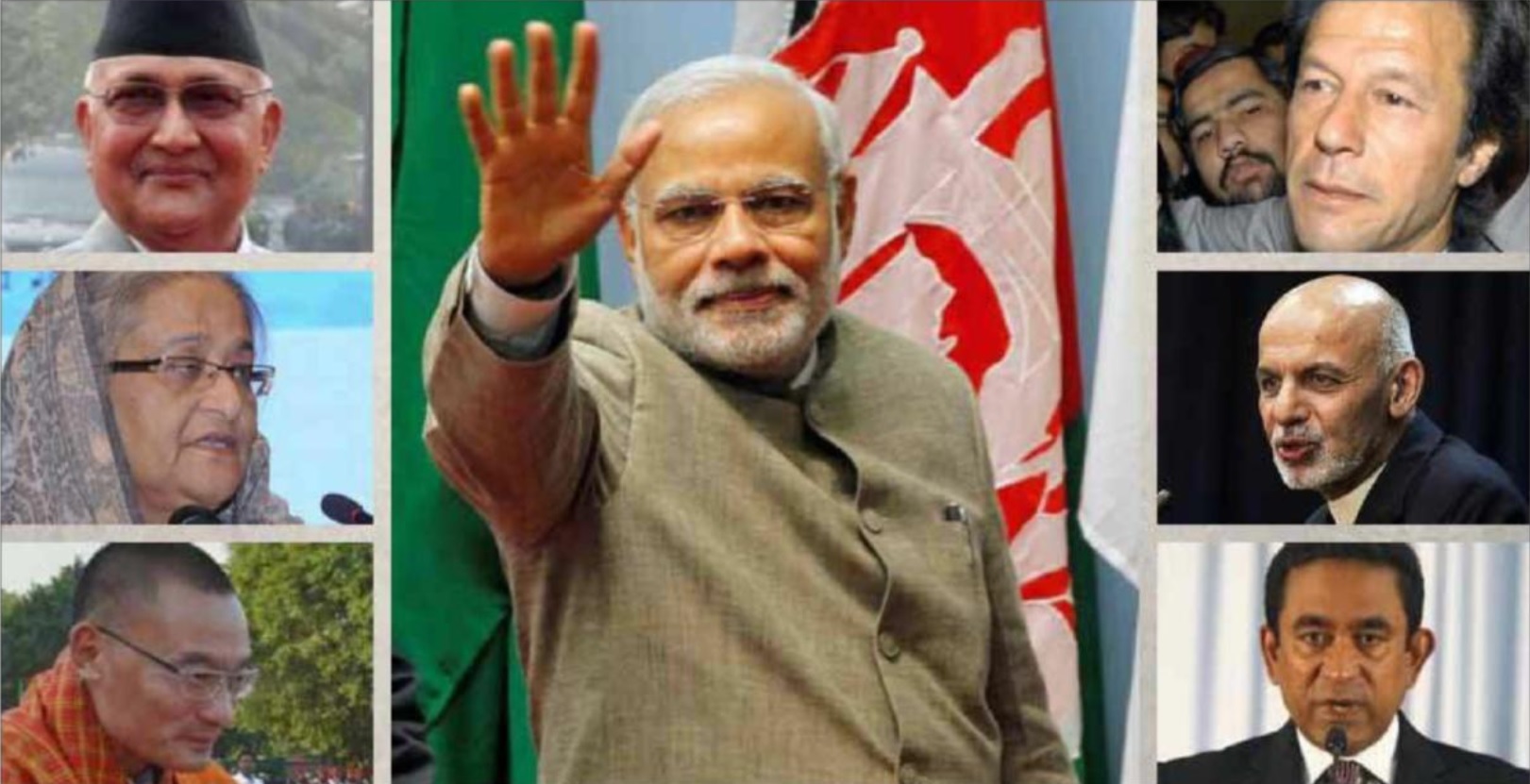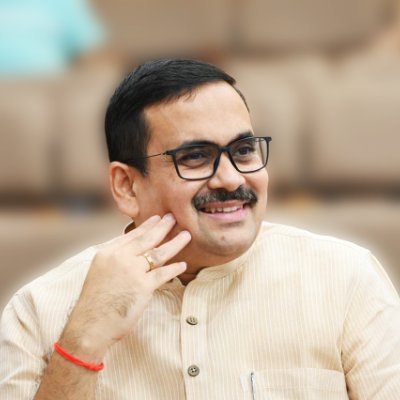Far from losing friends, as the Congress claims, we are witnessing a new narrative of engagement. India’s neighbourhood-first policy ensures that it maintains a long-term and reliable partnership with countries in the region.
PM Modi and PM Rajapaksa’s recent virtual summit has given the India-Sri Lanka relation a new dimension in the pandemic era. In August 2020, when he took over as Sri Lanka’s foreign minister, Jayanath Colambage had clearly stated that for Sri Lanka’s strategic and security policy, it will always be “India First”. The virtual summit had seen two very significant developments: One was the agreement on strengthening defence cooperation; and, two, the crucial announcement by PM Modi, in line with his commitment towards re-kindling civilisational ties, that India would give a grant assistance of “$15 million for the promotion of Buddhist ties between the two countries”.
That the All India Congress Committee’s foreign affairs department is near defunct and has almost shut shop have been evident for quite some time now. But when former Congress president Rahul Gandhi quoted The Economist to castigate the Modi government and blamed it for India apparently losing friends in the neighbourhood, it was clear that the once powerful AICC has gone into a state of prolonged hibernation and outsourced its foreign policy thinking to foreign sources.
That anyone can even think seriously of formulating a cogent and serious foreign policy argument based on an article in The Economist is astounding enough, but that India’s principle Opposition party’s top leader needs to base himself on a piece from The Economist to buttress his argument, shows how rudderless and unimaginative the Congress’ wings and departments have become.
From the days of Jawaharlal Nehru drafting the Congress’ foreign policy resolutions himself, to the likes of Purabi Mukherjee serving as the general secretary of the party and Margaret Alva conducting training camps for its leaders, to leaders like Anand Sharma and Karan Singh heading it, the AICC foreign affairs department has truly fallen on evil days. The fact that its former president and princeling-in-chief needed to take recourse to an article from The Economist shows how shallow, selfserving and reduced the Congress’ thinking has become on trying to assess India’s foreign policy under Prime Minister Narendra Modi.
PM Modi has altered the terms of the game completely. In the last six years, India has put to use, with remarkable alacrity and effectiveness, all the dimensions of power — soft, sharp and smart — to achieve her strategic and foreign policy objectives. More importantly, India, as Foreign Minister S. Jaishankar has argued, is no longer a ‘bystander’ and has contributions and interventions to make on the major issues of our times. This major and fundamental transformation is something the Congress and its leadership, especially its family, plagued by muddled thinking, is refusing to understand.
Of course, Jawaharlal Nehru himself never had any real and abiding global vision. He was constantly swayed by his own esoteric internationalism, which really had no place in the world of hard geopolitics. In his confused and muddled understanding of India’s foreign policy imperatives, and especially how these have been transformed under PM Modi, Rahul Gandhi has flashes of Nehru in him. For instance, to the utter astonishment of his colleagues in Parliament, on 12 December 1962, about two months after the China war debacle, when the Rajya Sabha was discussing the ‘Cease Fire Proposals’, Nehru had made an alarming statement: “I have suggested in the Lok Sabha that we might even be prepared to refer the question of the merits of the boundary disputes to the International Court of Justice at the Hague.” Obviously, even as late as 1962, Nehru had learnt no lessons from his misadventure of referring Kashmir to the UN, and his statement reflected his poor understanding of the intricacies of international politics. When A.D. Mani, an independent member from Madhya Pradesh and a veteran journalist, asked Nehru whether he could clarify his statement, Nehru reiterated his outlandish proposition, that among the various peace measures he was suggesting, this could be one: “These other peaceful methods might include a reference to the Hague Court…”
An incorrigible naiveté and a dense ignorance dipped in a personal hatred for PM Modi has made Rahul aimlessly blabber almost on every issue in the last few months. His contention that India is increasingly friendless in the neighbourhood is actually a dishonest assessment of India’s neighbourhood first policy. ‘Neighbourhood first’ continues to remain a cornerstone of PM Modi’s foreign policy doctrine. In fact, with all countries — except for the one recalcitrant selfstyled republic to her west — India’s approach to her neighbourhood has been based on the ‘Mitratva-Magga (Path of Friendship) and the SAGAR (Security and Growth for All in the Region) doctrine. The SAGAR doctrine is eliciting greater interest in the region and is being seen as a credible, reliable and long-term framework of partnership and exchange, devoid of exploitation and shorn of unilateralism.
In the neighbourhood, India continues to be regarded as the first responder to humanitarian crises, and in the last six years, while China laid claim to Nepali territory, encroached into it and erected buildings, India has continued unwaveringly in her commitment towards the well-being of the people of Nepal. The latest tranche, in the promised post-earthquake reconstruction of Nepal, especially in the construction of houses, schools and libraries, was handed over to the government of Nepal on 2 September.
PM Modi and PM Rajapaksa’s recent virtual summit has given the India-Sri Lanka relation a new dimension in the pandemic era. In August 2020, when he took over as Sri Lanka’s foreign minister, Jayanath Colambage had clearly stated, that for Sri Lanka’s strategic and security policy, it will always be “India First”. The virtual summit had seen two very significant developments: One was the agreement on strengthening defence cooperation; and, two, the crucial announcement by PM Modi, in line with his commitment towards re-kindling civilisational ties, that India would give a grant assistance of “$15 million for the promotion of Buddhist ties between the two countries”. This offers immense scope for a long-lasting re-invention of our civilisational linkages.
The Indian Foreign Secretary’s recent visit to Dhaka, the first since Covid struck, was a highly successful one. The successful completion of the LBA in 2015 was a landmark in the India-Bangladesh relation in the last four-plus decades and now the Beximco and Serum Institute of India (SII) agreement for Dhaka to be given “priority-access” to the Covid vaccine is a major step towards fulfilling India’s ‘neighbourhood first’ policy.
The launch of the direct Maldives-India Cargo Ferry Service has further enhanced our partnership with this crucial Indian Ocean island nation. The work on the expansion of the Hanimaadhoo International Airport has already started, with the Airport Authority of India team moving in and completing the survey for the work to begin. This will be one of the largest infrastructure projects in recent times and will give a major boost to the Maldivian tourism industry. The whole of India’s credit line system and diplomacy is based on transparency and sensitivity and is meant to completely empower and enhance the receiving country and fulfil its requirements. India’s financial package of $250 million for the Maldives during the pandemic period is also the largest by a bilateral partner.
Meanwhile, Myanmar is clearly rethinking and reassessing its approach to BRI and is in the process of diversifying its outreach and has started working on expanding its relations with India.
Far from losing friends, India’s neighbourhood is seeing a new narrative of engagement evolving with the creed and vision of SAGAR at its centre. It is a narrative of partnership that is far-seeing, dynamic and driven by transparency, accountability and a fundamental conviction that India’s neighbourhood needs to emerge as a dynamo of growth and prosperity for the people of the region and beyond. Prime Minister Modi has not only reiterated this in the last six years but has actualised it on the ground.
The Congress party’s leadership has lost its international perspective and it is beholden to the anti-India fringe and is, therefore, afflicted with the false spectre of a friendless India! The reality is convincingly otherwise.
(The writer is Director, Dr Syama Prasad Mookerjee Research Foundation, New Delhi. The views expressed are personal)
Image Source: The Daily Guardian
(The views expressed are the author's own and do not necessarily reflect the position of the organisation)


